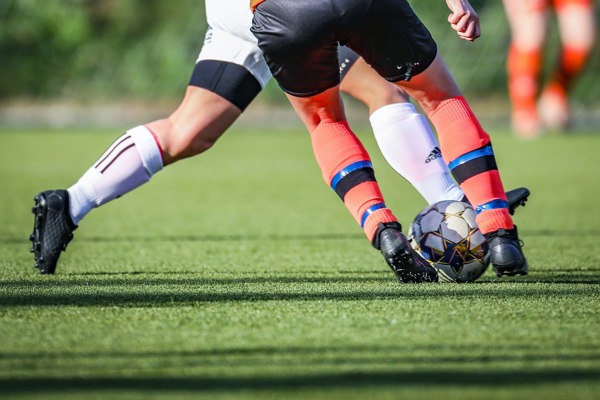Introduction
The Supreme Court recently had to deal with one such question in TUI UK Ltd v Griffiths [2023] UKSC 48. The facts were simple. Mr and Mrs Griffiths booked a package holiday inclusive of meals and facilities and Mr Griffiths suffered as serious stomach upset which left him long-term sick. Mr Griffiths sued the travel company and led expert evidence at trial to the effect that, on balance, it was likely the food/drink from the hotel that caused his stomach upset. The travel company did not cross-examine Mr Griffiths' expert, nor did it lead any expert evidence of its own. It restricted itself to criticising what it saw as deficiencies in the expert report in its closing submissions which it said illustrated that the claimant had failed to prove its case.
The Case History
The trial judge accepted these criticisms and held that Mr Griffiths had failed to prove his case. Mr Griffiths then appealed to the High Court which allowed his appeal with the judge noting that while there were "serious deficiencies" in the report, the expert had gone a long way to substantiating his opinion. He allowed the appeal. The travel company then appealed to the Court of Appeal which, by majority of 2 to 1, allowed the appeal again. The majority held that "uncontroverted evidence may be compelling, but it may not be: it may be inherently weak or unhelpful or of little weight for other reasons". However, Bean LJ issued a strongly worded dissent describing it as trite law that a party is required to challenge on cross-examination the evidence of any witness of the opposing party if it wishes to submit to the court that the evidence should not be accepted. While there were inadequacies in the report, the conclusions should have been challenged by the travel company in cross.
The Questions for the Supreme Court
The appeal to the Supreme Court raised fundamental questions about the fairness of a trial. The question was simply whether the trial judge was entitled to find that the claimant had not proved his case when the claimant's expert had given uncontroverted evidence as to the cause of the illness.
The Supreme Court's Reasoning
The Supreme Court in a unanimous judgment started by setting out the law. It reiterated the well-known rule that the role of an expert is to assist the court in relation to matters of scientific, technical or other specialised knowledge which are outside the judge's expertise by giving evidence of fact or opinion. However, the expert's role isn't in substitution for that of the judge. The judge remains the decision-maker on matters that are central to the case, and it is the judge's role to assess the evidence of an expert for its adequacy and persuasiveness (para 36). The quality of an expert's reasoning in that regard is of prime importance, under reference to the judgment of Lord Reed and Lord Hodge in Kennedy v Cordia (Services) LLP [2016] UKSC 6 (in particular para 48). The court refused to endorse the view of the courts below to the effect that a statement of opinion might assist the court if it is uncontroverted commenting that it was unlikely to do so "unless the opposing party could in the circumstances be taken to have admitted the accuracy of the conclusion, thereby relieving the judge of the task of evaluating the opinion or statement" (para 38).
Counsel for the travel company had sought to argue its case partly with reference to Scottish authority and, in particular, the case of Davie v Magistrates of Edinburgh 1953 SC 34 which also concerned a causation question namely, whether damage to houses had been caused by blasting operations in the construction of a sewer. However, while that judgment related to a question of causation and was, therefore, in point to that extent, it was also a case where the court evaluated an expert's evidence and preferred contradictory evidence of witnesses who did not have that expertise. It was not concerned with the circumstance which pertained in the present case which was that the expert was neither cross-examined nor contradicted by evidence led by the opposing party. The answer to that question lay elsewhere.
The question that this case raised was one of the fairness of the legal proceedings as a whole. In an adversarial system it was the judge's role to ensure fairness. One long-established rule which Phipson on Evidence 20th ed (2022) sets out and which Bean LJ quoted in the Court of Appeal was "In general a party is required to challenge in cross-examination the evidence of any witness of the opposing party if he wishes to submit to the court that the evidence should not be accepted on that point. The rule applied in civil cases…This rule serves the important function of giving the witness the opportunity of explaining any contradiction or alleged problem with his evidence. If a party has decided not to cross-examine on a particular important point, he will be in difficulty in submitting that the evidence should be rejected". The authorities (In re B (A Child) [2018] EWCA 2127; Edwards Lifesciences LLC v Boston Scientific Scimed Inc [2018] EWCA Civ 673 and other) supported that statement of principle.
The rule of practice was traced back by the Court to a closely analogous rule in The Queen's Case (1820) 2 Brod & Bing 284 where the court held that "if it be intended to bring the credit of a witness into question by proof of anything that he may have said or declared, touching the cause, the witness is first asked, upon cross-examination, whether or no he has said or declared, that which is intended to be proved". The genesis of the modern rule of practice was to be found in a libel case, Browne v Dunn (1883) 6 R 67 in which the Lord Chancellor (Lord Herschell) explained that "…it seems to me to be absolutely essential to the proper conduct of a cause, where it is intended to suggest that a witness is not speaking the truth on a particular point, to direct his attention to the fact by some questions in cross-examination showing that that imputation is intended to be made, and not to take his evidence and pass it by as a matter altogether unchallenged, and then, when it is impossible for him to explain, as perhaps he might have been able to do if such questions had been put to him, the circumstances which it is suggested indicated that the story he tells ought not to be believed, to argue that he is a witness unworthy of credit". That was said to be contrary to fair play and fair dealing. Other members of the Court in Browne focussed on the importance of giving the witness "an opportunity of explanation".
There were cases in this century which were to the same effect. In Deepak Fertilizers & Petrochemical Ltd v Davy McKee (UK) London Ltd [2002] EWCA Civ 1396 where the Court of Appeal overturned a judge's rejection of a witnesses' evidence on causation when he has not been challenged on it in cross-examination. Latham LJ stated that the general rule was that "…in adversarial proceedings…one party should not be entitled to impugn the evidence of another party's witness if he has not asked appropriate questions enabling the witness to deal with the criticisms that are being made". Moving on closer to the present day, similar issues arose in Tullow Uganda Ltd v Heritage Oil and Gas Ltd [2013] EWHC 1656 (Comm) where defence counsel had not challenged the truthfulness of a witnesses' evidence but had then "mounted and attack" on it in closing submissions. The court was unimpressed by that approach saying that "If there is to be such an onslaught on the honesty and credibility of these two professional witnesses…it must be necessary and, in any event, sensible and fair to put out a witness that in certain (in this case apparently numerous) respects he has been dishonest and is not telling the truth". Interestingly, as in the other cases, the Court's focus was not just on fairness to the witness but also fairness more generally and the integrity of the court process itself. There was a further important discussion of the rule in the Edwards Lifesciences case in which Floyd LJ emphasised the importance of cross-examination but recognised that it was not entirely inflexible (para 60).
The Summary of the Current Law
The Supreme Court summarised the rule in the following propositions:
- A party is required to challenge by cross-examination the evidence of any witness of the opposing party on a material point which he or she wishes to submit to the court should not be accepted. That rule extends both to witnesses to fact and expert witnesses.
- In an adversarial system of justice, the purpose of the rule is to make sure that the trial is fair.
- The rational of the rule is preserving the fairness of the trial, includes fairness to the party who has adduced the evidence of the impugned witness.
- Maintaining the fairness of the trial includes fairness to the witness whose evidence is being impugned, whether on the basis of dishonesty, inaccuracy or other inadequacy. An expert witness, in particular, may have a strong professional interest in maintaining his or her reputation from a challenge of inaccuracy or inadequacy as well as from a challenge to the expert's honesty.
- Maintaining such fairness also includes enabling the judge to make a proper assessment of all the evidence to achieve justice in the cause. This rule is directed to the integrity of the court process itself.
- Cross-examination gives the witness the opportunity to explain or clarify his or her evidence. That opportunity is particularly important when the opposing party intends to accuse the witness of dishonesty, but there is no principled basis for confining the rule to cases of dishonesty.
- The rule should not be applied rigidly and is flexible. For example, it would be disproportionate to cross-examine at length or where the trial just has set a limit on time for cross-examination. These would be relevant considerations where the court is considering the application of the rule.
- There are also various exceptions where the rule does not apply, such as:
- The matter to which the challenge is direct is collateral or insignificant and fairness to the witness does not require there to be a chance to answer or explain.
- The evidence of fact may be manifestly incredibly and the chance to cross-examine would accordingly make no difference.
- There may be a bold assertion of opinion in an expert's report without any reasoning to support it.
- There may be an obvious mistake on the face of an expert report which made is illogical or inconsistent. For example, in A/S Tallinna Laevauhisus v Estonian State Steamship Line (1946) 80 L1 L Rep where Scott LJ spoke of the court rejecting an expert's evidence if "he says something patently absurd, or something inconsistent with the rest of his evidence".
- The witnesses' evidence of the facts may be contrary to the basis on which the expert expressed his or her view in the expert report. In other words, the report is based on incorrect or incomplete history or where assumptions on which it is founded are not established.
- Where an expert is given sufficient opportunity (for example in writing) to clarify matters in his report or respond to criticism but fails to do so satisfactorily.
Conclusion
Accordingly, in TUI while the expert report "left many questions unanswered" and his assessment of the balance of probabilities was at "a very high level of generality" his conclusions and approach were not irrational and may have been proportionate given the circumstances of the claim. There was no basis for concluding that his evidence would not have explained his reasoning more carefully and fully had he been cross-examined. None of the exceptions outlined above applied and, therefore, the trial judge and the majority of the Court of Appeal erred in law in a significant way when they held in favour of the travel company. According to the Supreme Court the trial judge failed to consider the effect on the fairness of the trial and while the majority of the Court of Appeal did consider fairness, they erred in limiting the scope of the rule to challenges to the honesty of a witness.
The Supreme Court, therefore, allowed Mr Griffiths' appeal and unusually, that meant that it fell to the Supreme Court to make its own assessment of the evidence and it held that Mr Griffiths had established his case on the balance of probabilities.


